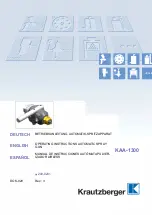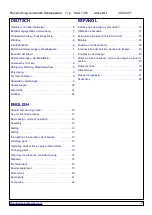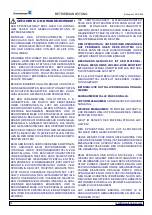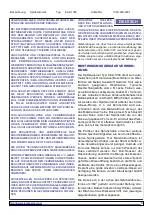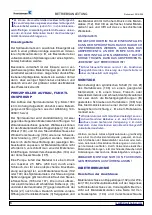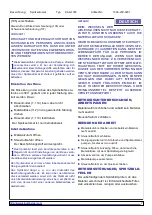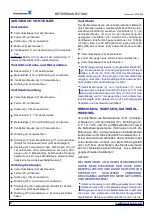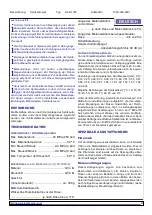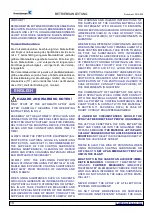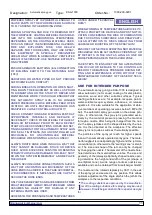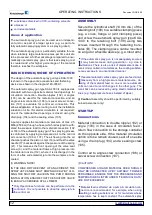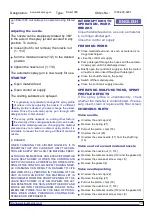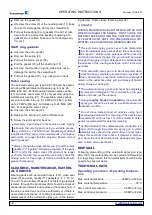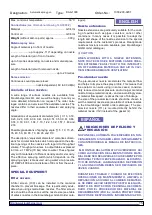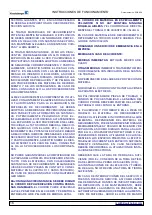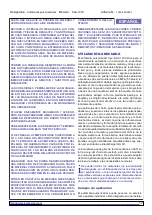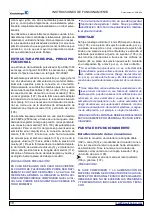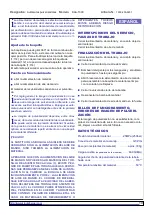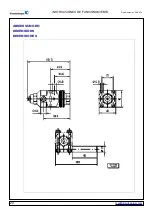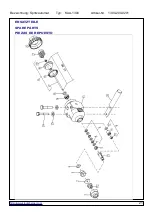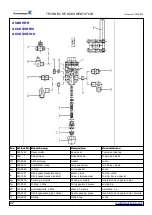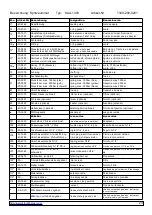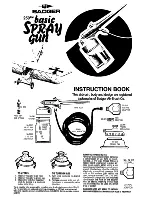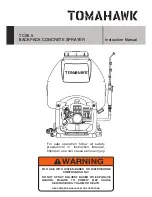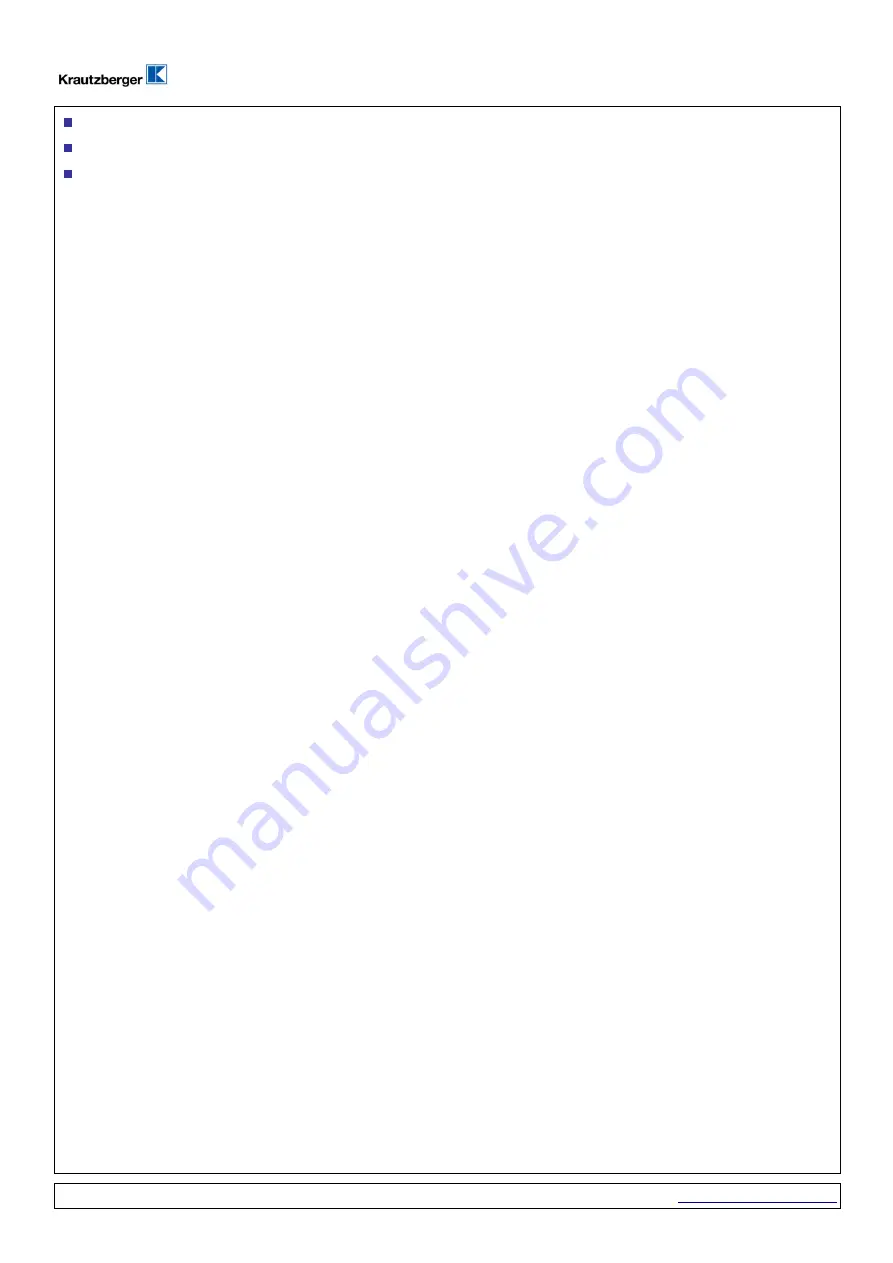
12
OPERATING INSTRUCTIONS
Document: DOK-029
substances dissolved in CFC-containing solvents
abrasive or
corrosive materials.
Areas of application
The automatic spray gun can be used as an independ-
ent unit or as part of a larger system (e.g. as part of a
fully automatic spraying system or a spraying robot).
The automatic spray gun is particularly suitable for use
when relatively large material volumes per time unit are
to be processed. A further advantage compared to pneu-
matically operated spray guns is that less spraying mist
is created and a far higher percentage of the material
therefore reaches the workpiece.
BASIC DESIGN, MODE OF OPERATION
The design of the automatic spray gun type KAA-1300
is shown in the appendix; accessories and fastening
device are shown in the diagram 140-0084/1.
The automatic spray gun type KAA-1300 is equipped as
standard with two opposite material feed openings for
circulation connection. Double nipples (102) or angles
(103) can be used for the material connection, and an
angle screw connection (106) or swivel screw connec-
tion (107) is available for control air connection. This
allows adaptation of hose routing to suit the installation
situation on site. If material circulation is not required,
one of the material feed openings is closed using the
drain plug (104) and the sealing screw (105).
A pump supplies the material at a pressure of max. 2,5
MPa (250 bar) through a hose (which is designed to with-
stand the pressure load) to the material connection (102
or 103) of the automatic spray gun. The spraying process
is controlled by applying compressed air to the control
air connection (106 or 107). The air flowing into the air
chamber pushes the piston, cmpl. (16) and thus the valve
needle (17) backwards against the pressure of the spring
(21). This releases the front opening of the valve seat
screw (3), and the material flows at high pressure into
the material nozzle (112), where it is discharged in the
form of a flat, wide material jet onto the workpiece to be
coated.
(!) WARNING NOTE!
IN THE RISK OR THE EVENT OF AN ACCIDENT, THE
SPRAY JET CAN BE SHUT DOWN QUICKLY BY CLO-
SING THE SHUTOFF VALVE ON THE PUMP. DURING
INSTALLATION, ENSURE THAT THE SHUTOFF VALVE
IS EASILY ACCESSIBLE AT ALL TIMES!
i
Only Open/Close functions can be performed via the
control air. It is not possible to dose the spray jet via
the control air.
ASSEMBLY
Secure the cylindrical shaft (14 mm dia.) of the
retaining bolt (108) to a suitable clamping piece
(e.g. a cross, flange or joint clamping piece)
and screw the automatic spray gun type KAA-
1300 to the retaining bolt (108) using two
screws inserted through the fastening bore-
holes (B). The clamping piece can be mounted
on a rigid or a flexible device (e.g. a robot arm).
i
If the automatic spray gun is not adequately secured,
it may become loose during operation - e.g. due to
vibrations. There is also a risk of displacement due to
recoil. Under certain circumstances, the coating substan-
ce may escape in an uncontrolled manner.
i
If several automatic airless spray guns are feed simul-
taneously from a high-pressure material source, clo-
sing of the material feed on one or more automatic
units can lead to recoil changes in the other guns. The
recoil risk can be reduced by using elastic material feed
lines (e.g. high-pressure hoses instead of pipes).
(!) Caution!
Assembly should be performed by suitably
trained personnel only!
STARTUP
Connections
Material connection to double nipple (102) or
angle (103); in the case of circulation feed -
return flow connection to the storage container
on the opposite side. If the material circulation
option is to be remain unused, seal off one side
using a drain plug (104) and a sealing screw
(105).
Control air to angle screw connection (106) or
swivel screw connection (107).
(!)CAUTION!
COMPRESSED AIR AND MATERIAL FEED SHOULD
ONLY BE CONNECTED UP BY SUITABLY TRAINED
PERSONNEL! ENSURE THAT THE PRESSURES AND
TEMPERATURES LISTED UNDER “TECHNICAL DATA”
ARE NOT EXCEEDED!
i
Material feed is effected via a pump. A circulation con-
nection is recommended, for example, when using
settling coating substances or for materials whose
temperature has to kept constant. The automatic spray

